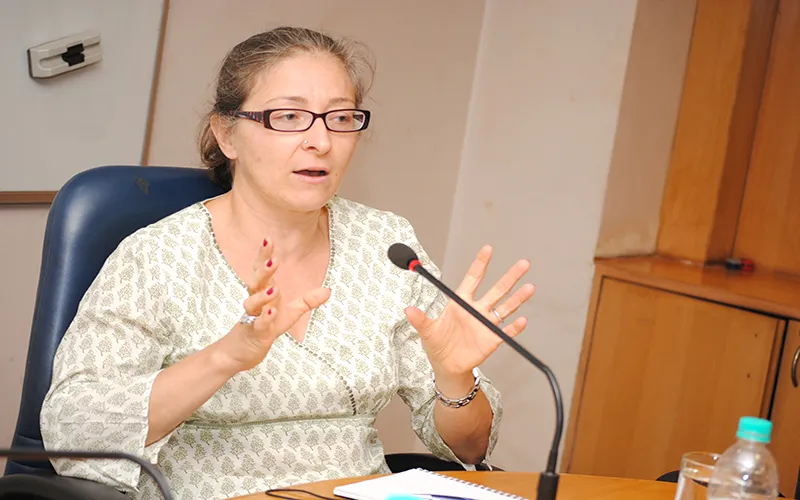-
CENTRES
Progammes & Centres
Location
The United States is contemplating a total reversal of its highly ineffective Pakistan policy. This was stated by Prof Christine Fair, Assistant Professor at Georgetown University's Edmund A Walsh School of Foreign Service while delivering a talk on "The situation in the Af-Pak region" at Observer Research Foundation on June 4, 2012.

The United States is contemplating a total reversal of its highly ineffective Pakistan policy. This was stated by Prof Christine Fair, Assistant Professor at Georgetown University’s Edmund A Walsh School of Foreign Service while delivering a talk on "The situation in the Af-Pak region" at Observer Research Foundation on June 4, 2012.
Frankly expressing her views from both Pakistani as well as American perspectives, Prof. Fair said that the US does not have a long-term policy for Pakistan, and the present practice of granting aid with the aim of fighting the roots of terrorism has not yielded any results. Consequently, despite fighting the Taliban, the US has inadvertently supported them while alienating the civilian population.
Prof. Fair said that the Pakistan’s decision to close ground supply routes for NATO troops in Afghanistan backfired as the NATO forces soon developed alternative air routes. This, in turn, led many Western leaders to recognise the futility of engaging Pakistan in the war on terror. She also pointed out that the killing of Osama Bin Laden in Pakistan further convinced policy makers in Washington of its duplicity.
Asked about the Republican presidential candidate Mitt Romney’s perceived lack of understanding about the situation in the West Asia and the Af-Pak region, Prof Fair said that presidential candidates learn very quickly once they take office. As an example, she pointed out Barack Obama’s similar naïveté four years ago and how he learnt and adapted his foreign policy within months into his presidency.
Prof. Fair said that President Obama is disappointed with Pakistan’s counter-terrorism performance, and that the US administration is contemplating containment to force it to abide to its obligations.
According to Prof. Fair, the futility of attempts to alter the pro-jihadist worldview of Pakistan’s foreign policy elite make a serious case of containment, which would hold Pakistan responsible for any terrorist attack with its ’signature’ on it.
Prof. Fair challenged the conventional wisdom that civilian governments in Islamabad are more responsible. She argued that past history suggests a linearity of foreign policy making between military and democratic regimes. This is compounded by a drastic transformation of the popular mindset towards fundamentalism and hatred against India.
Prof. Fair said there have also been numerous instances of the general public supporting mass killing of Shias, other non-Sunni groups and ’blasphemers’. Lashkar e-Toiba (LeT) and its charity front Jamaat ud-Daawah (JuD) have gathered public support for their persecution of religious minorities.
Prof Fair described the ’dumbing down’ of the Pakistan Army, especially in terms of education levels of recent recruits. She pointed at empirical evidence to suggest that terrorist organisations and the army are drawing their members from the same regions. She also said that higher levels of jihadist infiltration into the security forces poses a serious threat to the security of Pakistan’s nuclear arsenal.
When asked to suggest changes to US policy in Pakistan, Prof. Fair drew from the carrot and stick analogy and said that it was time to shift to the stick. As part of the anticipated US policy of containment, Prof Fair suggested expansion of the US ’hit-list’ to include more militant leaders, greater scrutiny of individuals within the ISI who are Taliban allies, and increase in the frequency of drone attacks.
(This report is prepared by Reuben Benjamin George, Research Intern at Observer Research Foundation)
The views expressed above belong to the author(s). ORF research and analyses now available on Telegram! Click here to access our curated content — blogs, longforms and interviews.